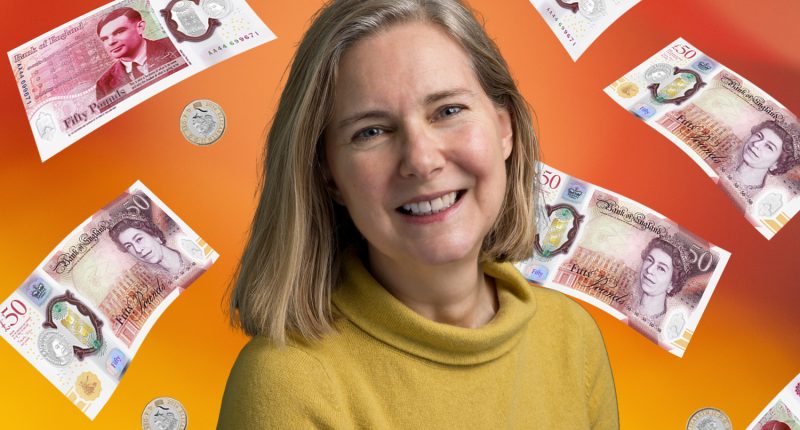IT’S the season for presents, parties and pigging out, but costs can quickly add up over the Christmas season.
If this festive period has stretched your purse, why not get ahead of the game and start saving now to ease the burden as next year’s celebrations will be here before you know it.
We spoke to Liz Edwards, editor-in-chief at personal finance site Finder.com who shared her top savings tips.
She said: “There are some shortcuts to starting your Christmas 2024 savings pot.
“But the key is to think of it as money you can’t touch, so you let it earn good interest. “
Liz’s full-proof tips will allow you to save at least £1,000 in time for Christmas 2024.
Read more in money
These include taking advantage of free cash and making sure you prioritise paying off any debts.
Plus, a simple check and switch could generate your household £100s in savings.
Here’s exactly how to do it.
Take advantage of free cash offers
Liz said several banks and building societies are offering a generous cash bonuses to new customers who join by switching their main current account.
Most read in Money
She said: “Nationwide‘s £200 bonus is the best I’ve seen right now.
“If you opt for its FlexDirect account, which is free, you could earn 5% on a balance of up to £1,500 for 12 months and potentially pocket another £75.
“And you’d get access to its Flex Regular Saver at 8% AER.
“If you save the full amount of £200 per month, after a year you’ll have £104 in interest.”
If you then add that amount to the switch bonus and in-credit interest you stand to earn £379 overall – with the interest being paid 12 months from when you open the account.
Switching to this account takes seven working days, and the £200 arrives within 10 calendar days of your switch completing, so you could get the interest payment just in time for next Christmas.
Repay those pesky credit card debts
Liz said: “It’s no use focusing on earning interest on your savings if it’s all being cancelled out by the interest you’re paying on credit card debt.”
If you’re eligible for a balance transfer credit card, it’s worth considering this as an option.
These types of money transfer credit cards allow you to move over debts you already owe onto a new card, and you won’t pay interest on this amount for a set period.
Liz said: “There are some that don’t charge any balance transfer fee or monthly account fee.”
“But it’s absolutely crucial to pay off the card balance during the 0% period or you’ll be hit with interest charges, so make a plan for how you’ll repay the full balance by the deadline before you start.”
You can find the best deals by checking with a bank or building society or searching for balance transfer credit card offers on a comparison website.
Sell your second-hand stuff
Liz swears by selling your unwanted goods and clothes online to bring in some extra cash.
However, the time you choose to list your items can affect how quickly your items might sell.
Liz said: “From Boxing Day this year into early January, sites like eBay, Vinted and Depop will be bulging with people’s unwanted party dresses and Christmas presents, plus the second-hand items they’re shedding after buying new in the January sales.
“So that’s not necessarily the best time to be listing any items you want to sell.
“It might be better to wait until the market’s less crowded, and at least until after the first payday of the year.
“Depending on what you’re selling, you might be able to use free price-tracking sites like PriceRunner and PriceSpy to look at current prices for new goods and the price history of your items, so you can see if their prices are rising or falling.”
The Sun has previously spoken to a Depop expert who shared how they’ve made hundreds of pounds selling old clothes online.
Make use of free budgeting and saving apps
There are free apps that can connect all your bank accounts in one place, help you track spending and spot where you’re paying out for subscriptions you’re not using.
They can also help you become a regular saver without trying.
Liz said: “Plum is a free app that connects to all major UK bank accounts.
“Using AI and automation, it rounds up transactions to the nearest pound and deposits the spare change into your Plum account every week.
“And it looks for savings you could make on household bills.
“Similarly, Emma – also free – connects your accounts and flags any subscriptions you might not need any more.”
There are lots of other money apps that can help you to budget and save.
Most apps are free, but some may give you the option to upgrade your subscription.
We’ve previously reviewed several popular money saving apps that work in a similar way to Plum.
Shop around on broadband, TV and insurance
It always pays to shop around and compare your utilities, like your phone and broadband plans, and insurance as they come up for renewal.
Liz said: “Check how much data you’re using on your mobile, and ask your provider about downgrading if you’re paying for data you don’t use.
“It’s worth considering downgrading your TV subscriptions, too.
“For example, Netflix Standard is £10.99 a month, but if you don’t mind putting up with ads, it drops to £4.99 a month, saving you £72 a year.
“Car insurance premiums have soared by around 60% on average this year.
“But you can save up to £560 by switching your provider, according to the insurance analyst Consumer Intelligence.
“When you’re getting quotes, it’s worth checking whether the price might be lower with a slightly different (but still accurate) job title.
“For example, a marketing assistant might also be called a ‘copywriter’.”
Save your savings into one pot each month
Liz said: “Keep putting the money you’ve saved – by round-ups, cancelling, downgrading and switching, and by selling off unwanted items – into a savings account paying the best rate you can find, and think of it as ring-fenced for next Christmas.”
To find the best rates visit comparison websites such as MoneyFactsCompare, Go Compare and MoneySupermarket.
These will help save you time and show you the best rates available.
These sites let you tailor your searches to an account type that suits you.
Read more on The Sun
There are five main types of savings accounts, and understanding the differences can help you narrow down the options.
- Easy-access savings accounts – usually allow unlimited cash withdrawals. However, this perk means they tend to come with lower interest returns.
- Regular savings accounts – generate decent returns but only on the basis that you pay in a set amount each month.
- Notice accounts – offer slightly higher rates than easy-access accounts but you’ll need to give advance notice to your bank (up to 95 days) before you can make a withdrawal or you’ll forfeit the interest.
- Fixed-rate bonds – these offer some of the highest interest rates. However, if interest rates increase during your term you can’t move your money and switch to a better account.
- Individual savings accounts (ISAs) – these can pay high interest but come with high withdrawal fees. But, Lifetime Isas are great for anyone aged 18-39 hoping to buy a house or save for retirement.










